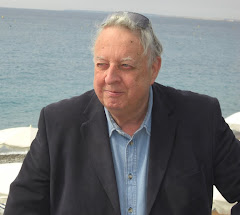Four voices. Soprano,
alto, tenor, bass. Two females (give or take a bit) and two males
(give or take a bit). The principal ingredients of quartets through
the ages, going back to consorts of viols, and the like. The string
quartet emerged powerfully under Haydn, then Mozart, then was
propelled to the fore by Beethoven and Schubert, then taken up by
pretty well everyone (including, latterly, the fifteen string
quartets of Shostakovich). The string quartet – particularly from
Beethoven onwards – became a powerful medium for personal
thought and expression, away from the sponsored and public glamour of
major orchestral works, symphonies and operas. This personal
nature is particularly marked in the later string quartets of
Beethoven, and in the fifteen string quartets of Shostakovich. For
me, one of the most sublime movements in all music is the opening
fugue (adagio) of Beethoven's C sharp minor string quartet opus 131;
here four voices conduct a civilised discussion amongst themselves,
drawing us into their world.
The music of Felix
Mendelssohn is normally expertly crafted and takes place in a
cloudless sky. But when mourning the death of his sister Fanny, he
turned to the string quartet and wrote the impassioned Op 80 string
quartet in F minor. For too long I have passed over the string
quartets of Mozart; a recent acquisition has been a four-CD set of
the eleven last quartets of Mozart played by the Alban Berg Quartett
in the 1970s. The recording puts one at the back of the concert hall,
unfortunately, and I miss the aural participation one gets with
recordings such as those of the St. Petersburg String Quartet playing
the eternally fascinating string quartets of Shostakovich.
I never got on with the
string quartets of Béla Bartok, but then Bartok and I rarely see eye
to eye. And I have made valiant efforts with the string quartets of
Benjamin Britten but, like so much of Britten's music, I find them
works of great craftsmanship rather than great art. So my quartet
listening is based on Beethoven, Schubert and Shostakovich, with
Mozart now getting a look in, and Haydn still hiding somewhere in the
undergrowth. Whatever: the string quartet is still one of the very
greatest forms of music, and provides listening that is endlessly
fascinating and enjoyable.

No comments:
Post a Comment